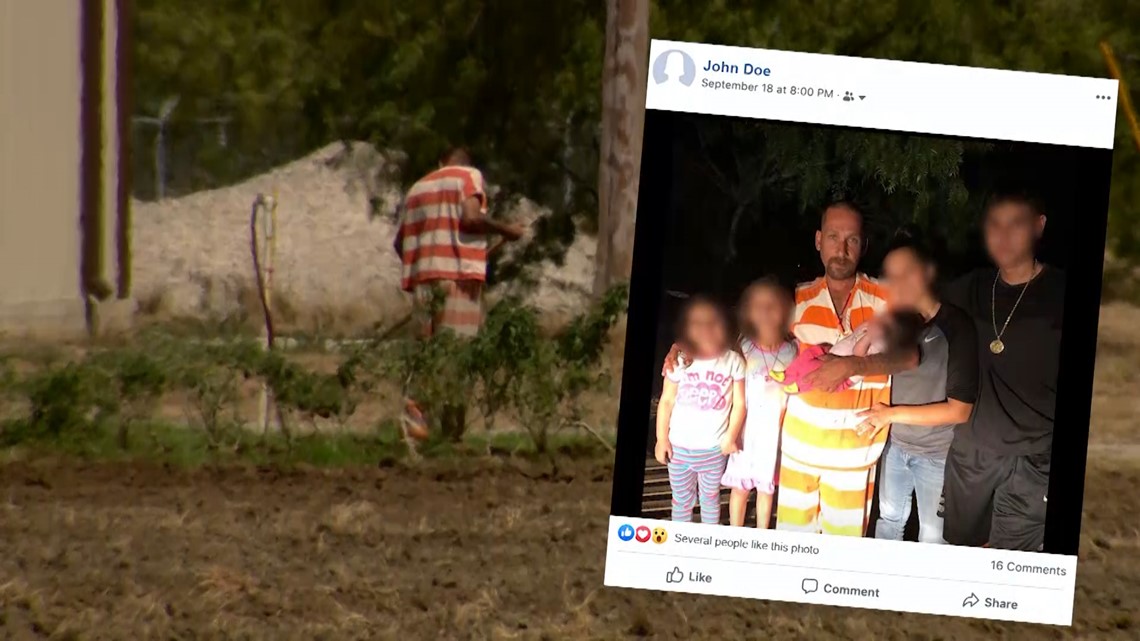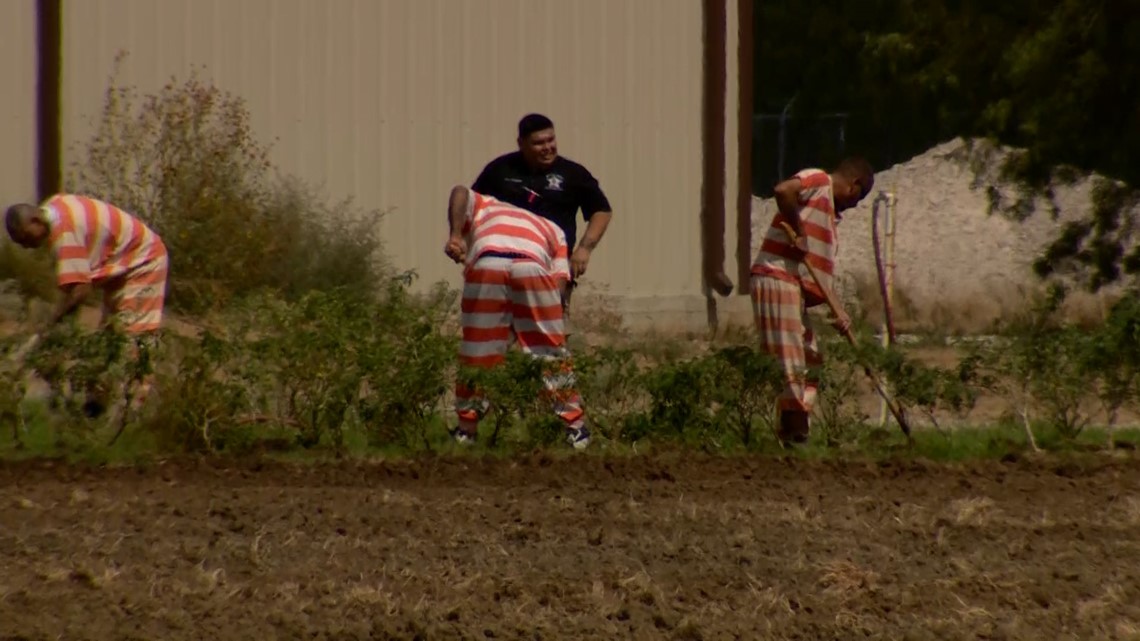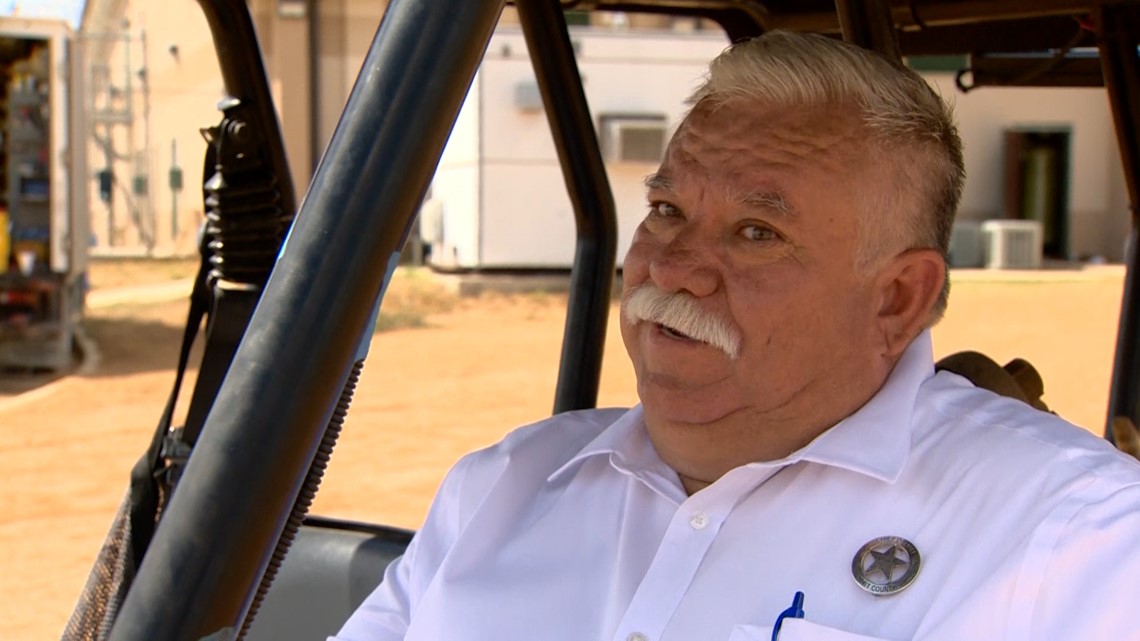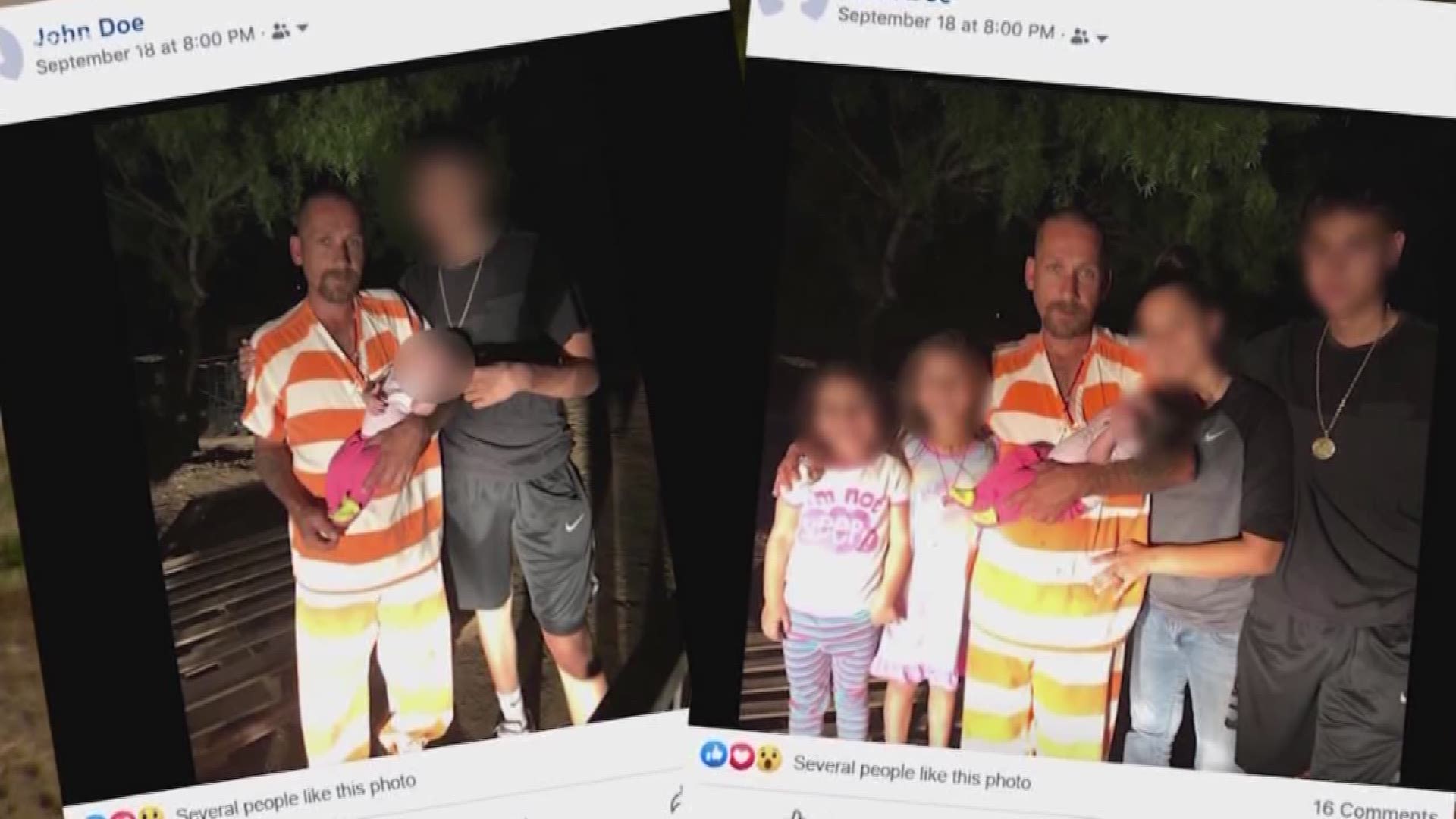DIMMIT COUNTY, Texas — Photos depicting an inmate alongside his family are sparking questions about visitation practices at the Dimmit County Jail.
While Brandon Wood, the executive director of the Texas Commission on Jail Standards, is calling for the practice to be stopped immediately, Sheriff Marion Boyd said he doesn't plan on changing a thing.
The photos, posted to social media last month, show inmate Alvaro Garza clad in a jumpsuit, holding a newborn baby while standing next to family members.
“His daughter had a baby and he wanted an opportunity to see his grandchild so I allowed the opportunity," Boyd said, explaining that the photo was taken while Garza was at his job site in an unenclosed garden behind the jail.
"I understand, at the face of it, it doesn’t look good," Boyd said. "Especially if you’re not able to explain yourself or explain the situation.”


Although he allowed the so-called "contact visit," he said he didn't allow the photos. The images were hastily removed from social media after Boyd contacted Garza's family.
According to Boyd, Garza was sentenced to 120 days in the Dimmit County Jail after testing positive for marijuana, which was in violation of the terms of his probation stemming from an aggravated assault charge.
'I personally think it's a good thing'
Boyd said while he understands jail should not be a vacation for inmates, he said he looks at it from the perspective of the inmate's loved ones.
"Let's talk about any individual—if they had a family member that made a mistake, who did something wrong and they wanted to have a contact visit with (them), and this inmate was not a high-risk inmate and wasn't creating a problem in jail," he said, before concluding that the family should be able to visit their loved one.
“I personally think it’s a good thing,” he said.
Boyd's Chief Deputy, Luciano Quintanilla, also supports the program. He said many of the inmates are individuals who made a mistake.


“Why just lock them up and throw them away?” Quintanilla said of the inmates.
Boyd and Quintanilla said they have personal relationships with the prisoners and their families because, in many cases, they grew up with them.
Quintanilla said that a commonality among the prisoners that come through the jail is that they come from broken homes.
“We don’t want it to continue," Quintanilla said. "We want to break the cycle and maybe (visits) will help a little bit.”
But despite the seemingly lax policy on visitation for some inmates, Quintanilla said the administration is tough on crime.
“If we catch whoever we catch violating the law, we take care (of it) according to the law," he said. "But like I said, it doesn’t mean you throw away the key. We’re all humans."


Boyd said there's not much risk associated with his decision to allow inmates' families to visit them at their work site because, in addition to knowing the inmates, he said that a violation of jail rules would mean a lengthier sentence.
“I can never guarantee 100% because here’s always something that could happen,” Boyd said.
Wood cautioned against the practice because of the possibility for contraband to enter the jail, along with other inmates becoming upset that they are unable to enjoy the same privilege.
“I don’t think it’s a best practice and I think they should probably eliminate that,” Wood said.
But Quintanilla said it's a privilege afforded to inmates who are on their best behavior.
“What's so wrong about visiting family?" Quintanilla said. "We’re all human. We all have feelings. We all love each other. So why not?”

